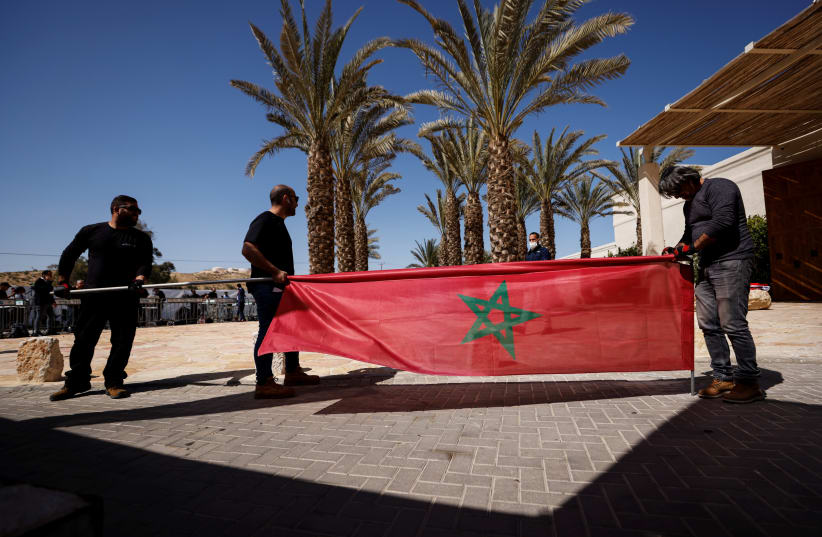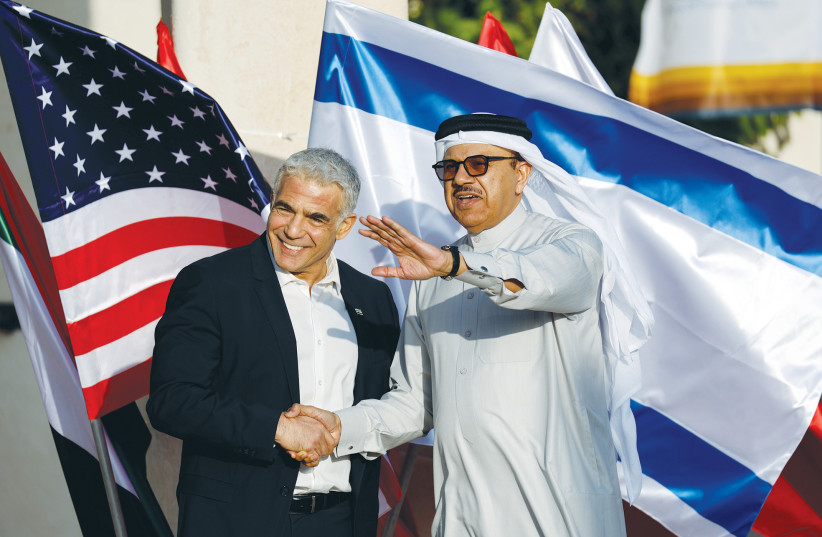Morocco’s royal palace asked the country’s largest Islamist party, the PJD to stop political attacks against Rabat’s ties with Israel, as it took a public stand in support of the Jewish state just days after Saudi Arabia moved closer to Iran.
“The General Secretariat of the Justice and Development Party (PJD) recently issued a statement containing irresponsible excessive views and dangerous approximations concerning the relations between the Kingdom of Morocco and the State of Israel, against the background of the latest developments in the occupied Palestinian territories,” the Royal Palace stated.
Foreign policy cannot be subject to blackmail - palace
“The Kingdom’s international relations cannot be the subject of blackmail by anyone or for any consideration,” the Palace emphasized, adding that the Kingdom’s foreign policy can’t become part of a domestic partisan agenda.
Earlier in the month, the country’s Foreign Minister Nasser Bourita angered the PJD when he announced a new tripartite initiative between Morocco, Israel and the European Union with regard to water management during a joint press conference with the EU Neighborhood Commissioner Olivér Várhelyi.
The PJD in response condemned Bourita’s stance “in which he appears to be defending the Zionist entity... at a time the Israeli occupation continues its criminal aggression against our Palestinian brothers.”
Bourita has been the most recognizable face of his country’s participation in the US-sponsored Abraham Accords of 2020. Morocco at that time agreed to normalize ties with Israel along with three other Arab nations; the United Arab Emirates, Bahrain and Sudan. Part of Morocco’s agreements with Israel includes a defense pact.
In exchange for Morocco’s participation in the accords, Washington recognized Rabat’s sovereignty over Western Sahara, a disputed territory where the Algeria-backed Polisario Front seeks to establish its own state.
The Palace referenced Western Sahara when it explained that its relationship with Israel did not diminish its support for the Palestinians.
“Morocco's position regarding the Palestinian question is irreversible.”
Morocco's royal palace
“Morocco’s position regarding the Palestinian question is irreversible. It constitutes one of the priorities of the foreign policy of His Majesty... who places this issue on a par with the question of the Kingdom’s territorial integrity,” the Palace stated.
The statement was issued just days after Saudi Arabia and Iran agreed to reestablish diplomatic relations after seven years, a step that pundits fear could harm the Abraham Accords. Saudi Arabia is seen as a silent partner of the accords. Saudi Arabia’s tacit relationship with Israel and the overt one by Abraham Accord countries is believed to be based in part on the creation of a Gulf security architecture against Iran.
On Sunday, Channel 12 said that the UAE planned to halt its purchase of Israeli defense equipment in light of the domestic turmoil in Israel. Prime Minister Benjamin Netanyahu and the Foreign Ministry vehemently denied the report.
Reuters contributed to this report.

